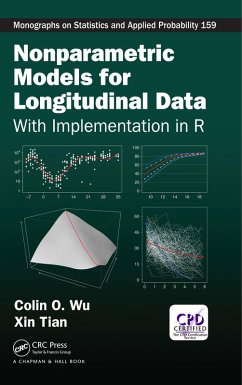Dieser Download kann aus rechtlichen Gründen nur mit Rechnungsadresse in A, B, BG, CY, CZ, D, DK, EW, E, FIN, F, GR, HR, H, IRL, I, LT, L, LR, M, NL, PL, P, R, S, SLO, SK ausgeliefert werden.
~Jianhua Huang, Texas A&M University
". . . , this book provides a comprehensive review of the structure of longitudinal data, as well as several applicable nonparametric models. It should prove useful for those working with biomedical data, including real world evidence. The focus is on theorems and proofs; references demonstrate the depth of the research. Real life examples are provided in the form of data descriptions, as well as R code and output. These examples will allow the reader to employ the models and gain expertise in the interpretation of the R output."
~Journal of Biopharmaceutical Statistics, Darcy Hille, Merck Research Laboratories
"The authors are to be commended for such a thorough and well written book, which would certainly be of interest to anyone involved in analysing complex longitudinal data or with an interest in nonparametric approaches."
~David Hughes, ISCB Newsletter


